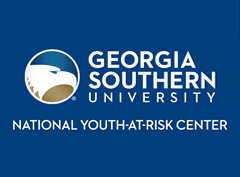Makes a Difference to That One - Building Authentic Relationships ... One Student at a Time
Location
Rural Strand - Bowie C
Focused Area
Improving School Climate for Youth-At-Risk
Relevance to Focused Area
In the February 9, 2016 edition of Education World, Dr. Kent D. Peterson of the University of Wisconsin- Madison defined school culture as "the set of norms, values and beliefs, rituals and ceremonies, symbols and stories that make up the 'persona' of the school." This presentation will focus on the concept of building relationships one student at a time in an effort to improve the overall climate and culture of a school by altering the norms, values, and beliefs to reflect an environment where respect, trust, and individual value is most prevalent. The premise behind relationship building with students is the idea that if a student feels respected and cared for, they are less likely to engage in behavior requiring disciplinary action and more likely to succeed academically. This idea is supported by a variety of research from such sources as Robert Marzano (2003), the National Dropout Prevention Network (2010), and a wealth of others.
Primary Strand
Academic Achievement & School Leadership
Relevance to Primary Strand
While the concept of Relationship Building with students could fit into a number of strands, this presentation is best suited for Academic Achievement and School Leadership as it will focus on the practical practical strategies that can be immediately implemented with students in a manner to promote positive and productive interactions in the classroom in order to improve student achievement. If students do not feel respected and valued in their classroom setting, they are not in a mind-frame to learn and achieve. A foundation of authentic relationships allows the basic safety and security needs of the student to be meet in order to facilitate an environment where learning is possible. Further, authentic relationship building should be implemented and modeled by building leaders to communicate a positive culture throughout the building.
Brief Program Description
Students are more likely to learn in an environment where they feel valued and respected. How do you create such an environment when working with at-risk students and closed-off students? Come hear real-world examples and foundational research on practical strategies to build authentic relationship, foster a positive environment, and change school culture… one student at a time.
Summary
“People will forget what you said, people will forget what you did, but people will never forget how you made them feel.” These words from Maya Angelou, printed on motivational posters, are plastered on the walls of classrooms across America. But their true meaning shines out from those classrooms in which the words are embodied and modeled by the adults who interact and shape students on a daily basis. Building authentic relationships with students is about more than standing in the hallway before class with a smile and hello. Building authentic relationships is a frame of mind, a paradigm approach that is part of every interaction with a student. It is seen in how you speak to them, what you learn about them, how you encourage them, how you handle discipline and redirection, how and when you advocate for them. Authentic relationships are just that, authentic - based on genuine care and concern for the student as an individual.
This presentation will focus on practical strategies and approaches to build authentic relationships with all students, especially the at-risk youth that are sometimes the most challenging to connect to due to a closed-off nature. It will give real-word examples as well as foundational research on the benefits and techniques of building authentic relationships with students. Strategies will also be given to promote a positive classroom environment for all students and tips to implement when the dynamic or mood in the classroom is creating stress or frustration. Practical advice will be given on various ways to demonstrate caring while still maintaining a safe and managed classroom will also be discussed.
Evidence
There is a wealth of literature and research available to support the benefits of authentic relationship building. In a 2003 article in Education Leadership, Phillip and Nancy Hall discuss the paradigm shift in education to focus on relationship building as a means of fostering student academic success. Robert Marzano conducted a meta analysis in 2003 that showed the teachers who had high quality relationships with students had significantly less disciplinary problems in their classroom. Rimm-Kaufman and Sandilos site various research in their APA article that shows a positive student-teacher relationship resulted in students who are, "less likely to avoid school, appeared more self directed, and were more cooperative and more engaged in learning."
Format
Individual Presentation
Biographical Sketch
Lynette Thrasher is an Instructional Coach at a rural middle school in Northwest Indiana. After working in state and federal government she began a career as a Reading Specialist working with remedial and at-risk middle school students. She has presented on a variety of subjects including using technology to foster engagement and improving literacy achievement for low-performing students. She is pursuing her doctorate in Educational Administration from Ball State University.
Start Date
10-23-2016 1:00 PM
End Date
10-23-2016 2:30 PM
Recommended Citation
Thrasher, Lynette D., "Makes a Difference to That One - Building Authentic Relationships ... One Student at a Time" (2016). National Youth-At-Risk Conference, West (2015-2017). 1.
https://digitalcommons.georgiasouthern.edu/nyar_vegas/2016/rural/1
Makes a Difference to That One - Building Authentic Relationships ... One Student at a Time
Rural Strand - Bowie C
Students are more likely to learn in an environment where they feel valued and respected. How do you create such an environment when working with at-risk students and closed-off students? Come hear real-world examples and foundational research on practical strategies to build authentic relationship, foster a positive environment, and change school culture… one student at a time.
